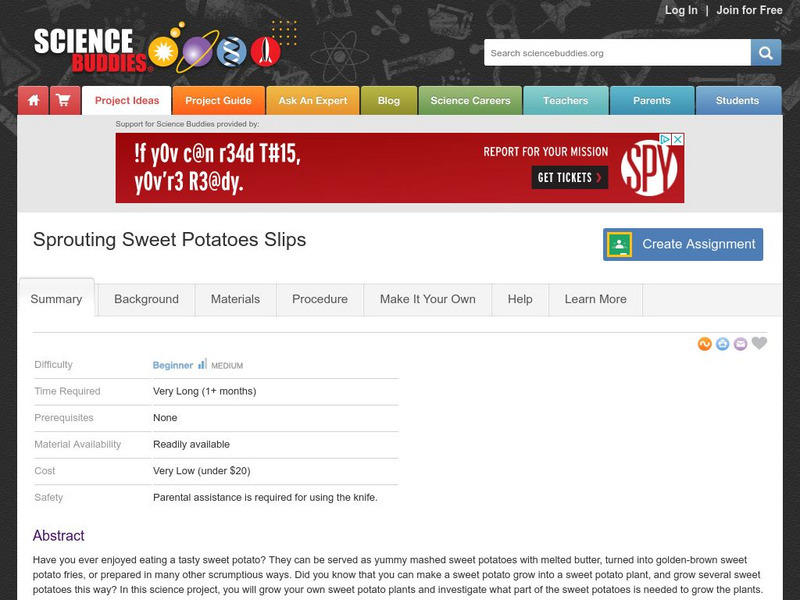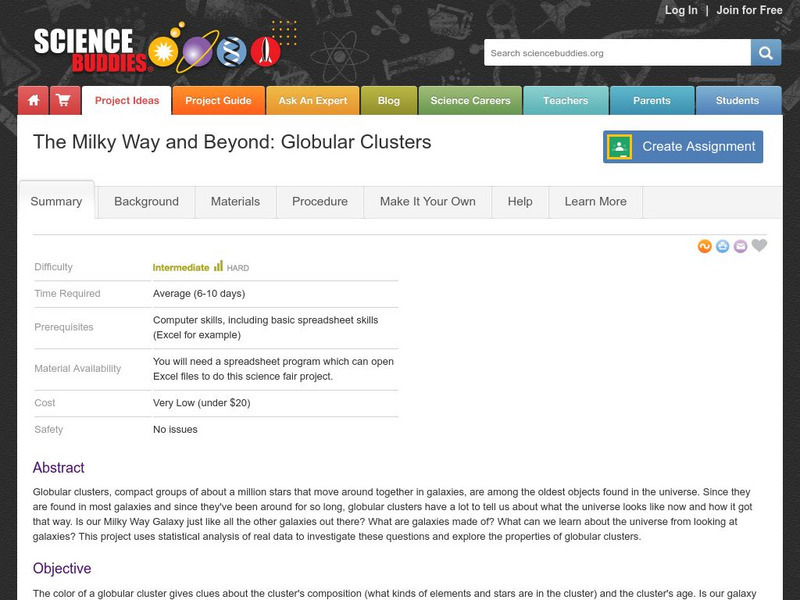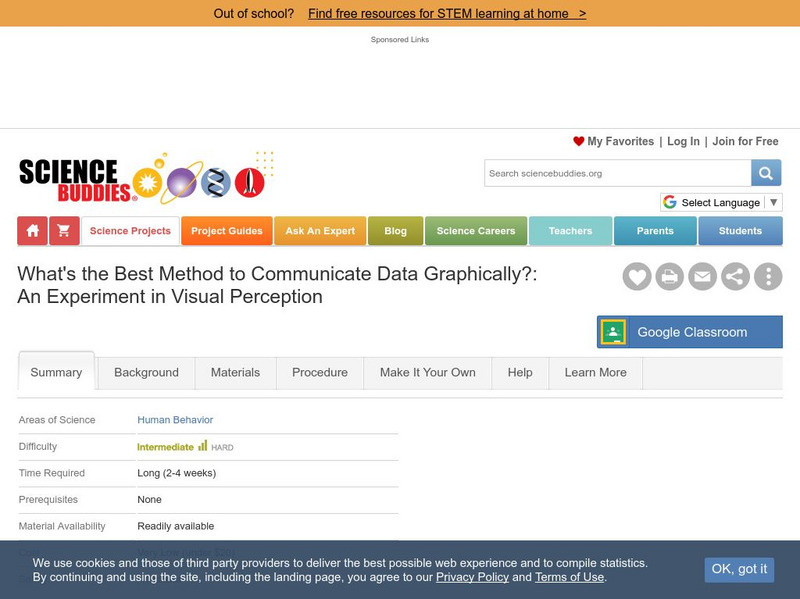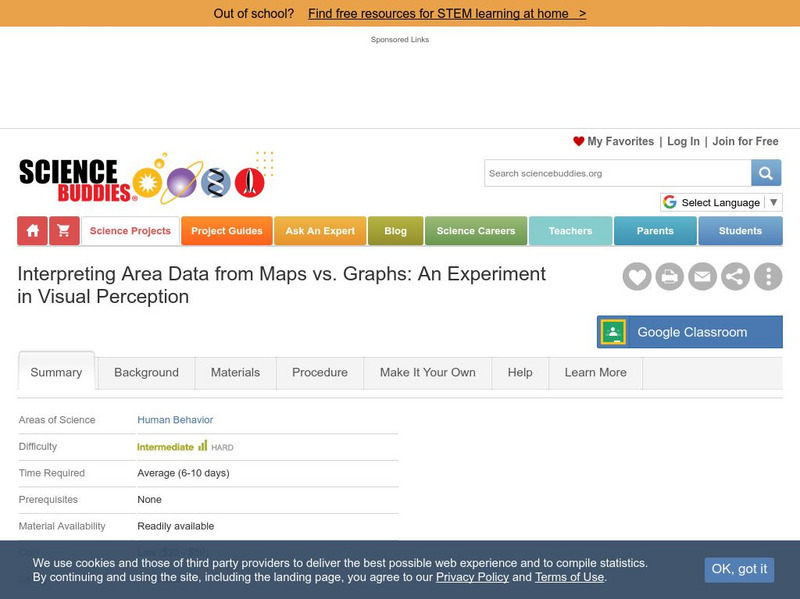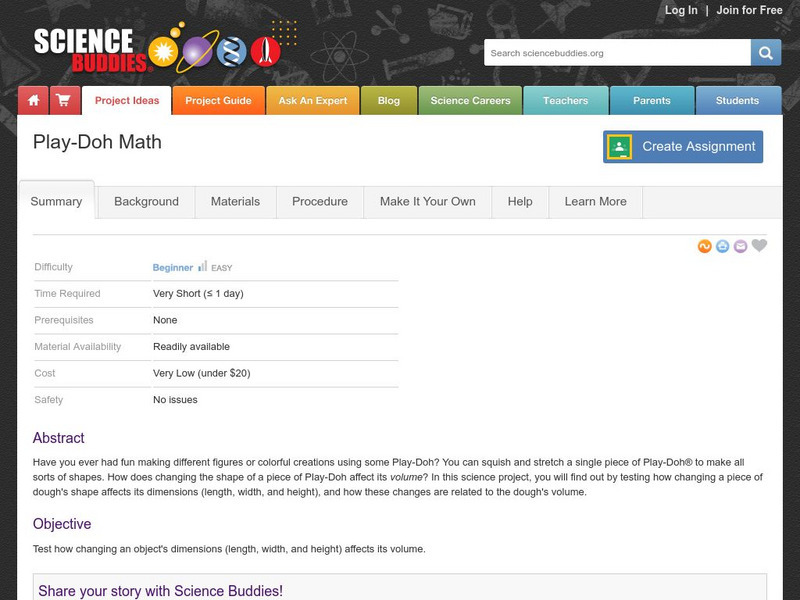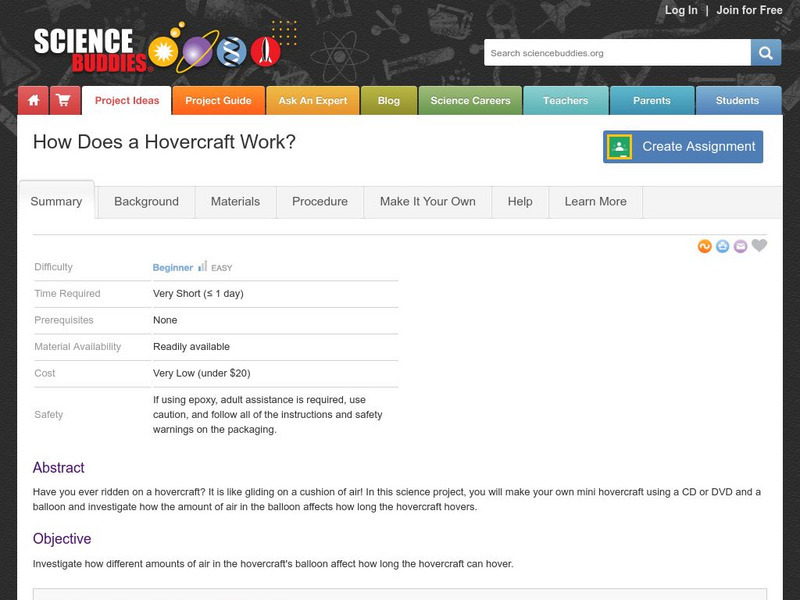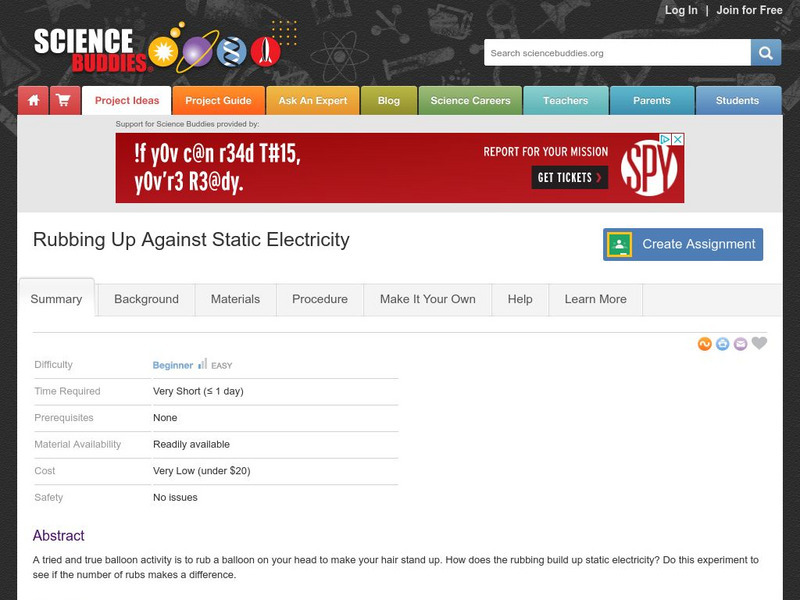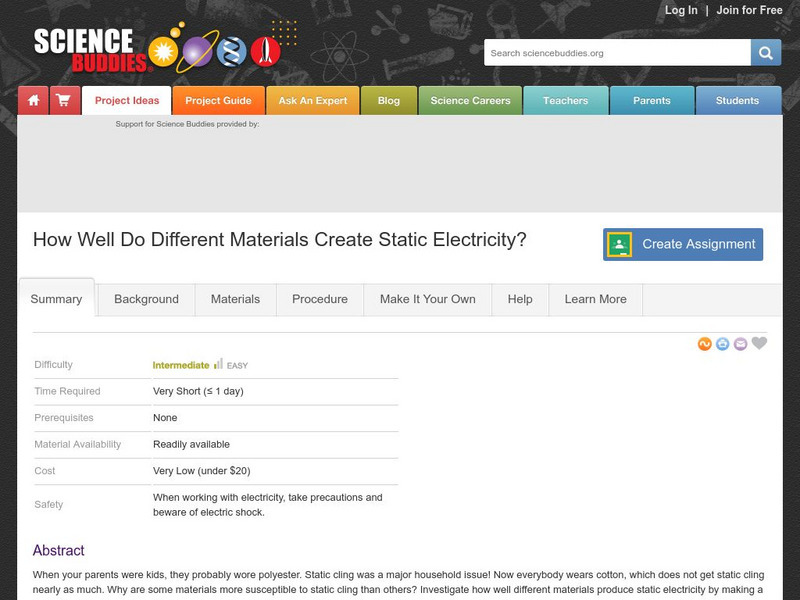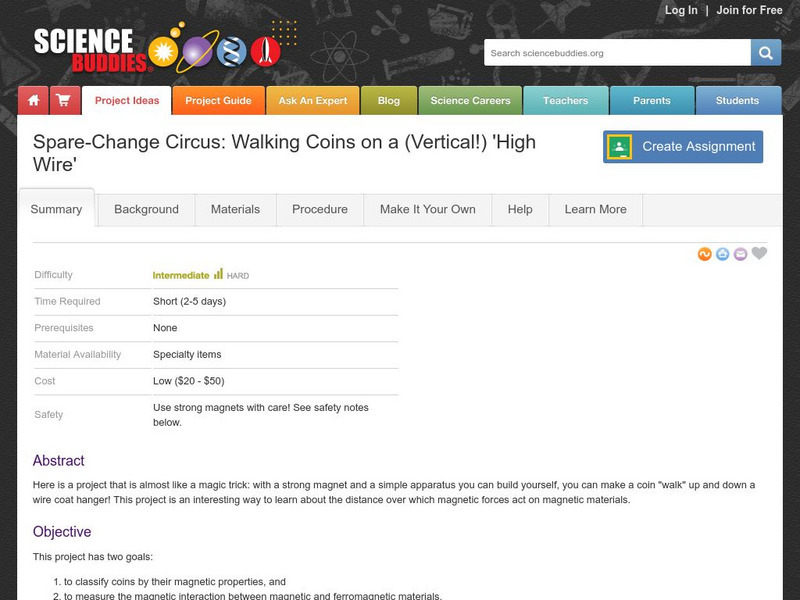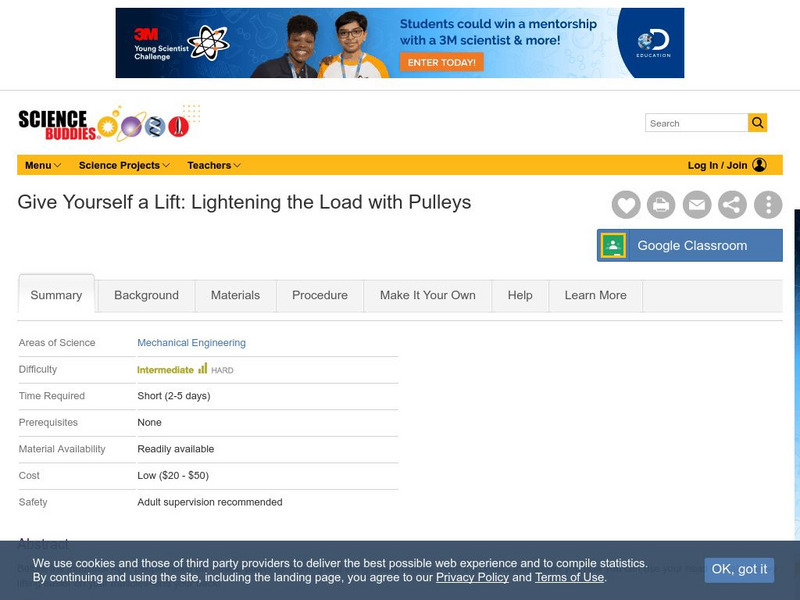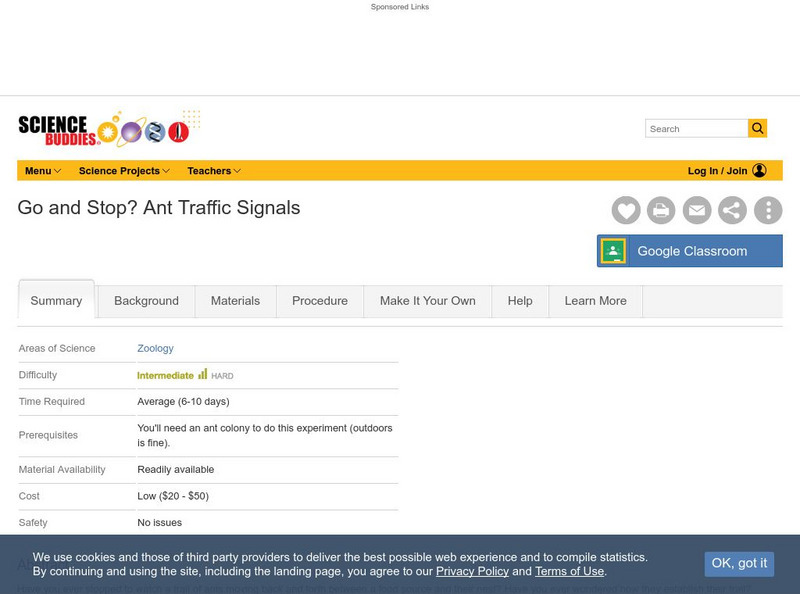Hi, what do you want to do?
Science Buddies
Science Buddies: Do Potatoes Regulate the Formation of New Roots?
Propagate potatoes by giving it the right environment for the eyes to sprout.
Science Buddies
Science Buddies: Shoots: How Do Mint Plants Branch to Form New Stems?
Do you like to climb trees? The branches of trees are what make them so fun to climb. Each branch starts out as a tiny shoot that grows out from a stem. How is the growth of shoots along a stem regulated?
Science Buddies
Science Buddies: Measuring the Moon
Sometimes a full moon can be so bright, you can walk around in the dark without a flashlight. How much brighter is a full moon than the other phases of the moon? How is the brightness of the moon measured?
Science Buddies
Science Buddies: How Many Seeds Do Different Types of Fruit Produce?
Do you like your strawberry jelly with or without the seeds? Are you glad to have a seed-free watermelon, or do you enjoy spitting the seeds into the garden? You might not like to find seeds in your fruit, but fruit is nature's way of...
Science Buddies
Science Buddies: A Matter of Time
Do you wake up at the crack of dawn, or do you need an alarm clock to wake you up each morning? It may surprise you that the two are not always in synch. Nowadays, we use Standard Time to set our watches instead of Solar Time. Which...
Science Buddies
Science Buddies: The Milky Way and Beyond: Globular Clusters
Globular clusters, compact groups of about a million stars that move around together in galaxies, are among the oldest objects found in the universe. Since they are found most galaxies and since they've been around for so long, globular...
Science Buddies
Science Buddies: Sunspot Cycles
Sunspot activity has been monitored continuously since about 1700. The historical data shows that sunspot activity rises and falls in a roughly 11-year cycle. This project shows you how you can use both graphical and statistical analysis...
Science Buddies
Science Buddies: Pick a Card, Any Card
No matter what your favorite card game is, we all wish we could use psychic powers to draw the card we want on our turn. You may not have psychic powers, but you might have the power of probability on your side. Do this experiment and...
Science Buddies
Science Buddies: Finding Phyla
Animals come in all shapes and sizes, each a small part of the amazing diversity of life. These differences can also help us to classify animals into different groups. Which group do you belong to? Do this experiment to investigate the...
Science Buddies
Science Buddies: An Experiment in Visual Perception
Graphical methods of data presentation are a key feature of scientific communication. This project will get you thinking about how to find the best way to communicate scientific information.
Science Buddies
Science Buddies: Interpreting Area Data From Maps vs. Graphs
Graphical methods of data presentation are a key feature of scientific communication. This project asks the question, "What's the best way to compare the land area of states: a map or a bar graph?" You'll be measuring performance on two...
Science Buddies
Science Buddies: Dry Spells, Wet Spells: How Common Are They?
Here's a project that looks at what the weather was like for over a hundred years. The goal of the project is to compare long-term precipitation patterns in different regions of the country. You will work with historical climate data,...
Science Buddies
Science Buddies: Play Doh Math
One piece of Play-Doh can make many different shapes. Even though you can change the shape by squishing or stretching the Play-Doh, it is still the same size unless you add or take away some of the dough. Try this experiment to test how...
Science Buddies
Science Buddies: Juice Box Geometry
Juice boxes are so convenient, just poke the straw in and sip away. It might surprise you how much thought goes into the design and manufacturing of a juice box. Each manufacturer has carefully calculated how big each side should be to...
Science Buddies
Science Buddies: M&m Geometry
Geometry is the study of how to use math to describe and investigate different points, lines and shapes. The way that a shape is described in geometry is with a formula, which is simply a mathematical way to calculate different...
Science Buddies
Science Buddies: How Does a Hovercraft Work?
Riding on a hovercraft is like gliding on a cushion of air. Make your own mini hovercraft in this experiment to test how hovercrafts work.
Science Buddies
Science Buddies: Rubbing Up Against Static Electricity
A tried and true balloon activity is to rub a balloon on your head to make your hair stand up. Learn how the rubbing builds up static electricity using this experiment to see if the number of rubs makes a difference.
Science Buddies
Science Buddies: How Do Different Materials React to Static Electricity?
Polyester clothing was generally accepted as a popular trend in fashion at one point in history. Now everybody wears cotton, which doesn't get static cling nearly as much. Why are some materials more susceptible to static cling than...
Science Buddies
Science Buddies: Walking Coins on a (Vertical!) 'High Wire'
Here is a project that is almost like a magic trick: with a strong magnet and a simple apparatus you can build yourself, you can make a coin "walk" up and down a wire coat hanger. This project is an interesting way to learn about the...
Science Buddies
Science Buddies: Soil Compaction
Have you ever had to dig a hole in really hard dirt? It is a lot of work. In this experiment you can make an instrument to test the soil and find out how compacted it is, before you dig.
Science Buddies
Science Buddies: Soil Color and Moisture
When you step in mud it can be very messy. How can you tell if soil is wet or dry before you step in it? In this experiment, you can see if color can help you figure it out.
Science Buddies
Science Buddies: Porosity and Particle Size
Often, when we think of something that is solid we think about rocks. But in reality, rocks have tiny holes of air inside them. This is called porosity. In this experiment you can find out what it means to be "solid as a rock."
Science Buddies
Science Buddies: Give Yourself a Lift: Lightening the Load With Pulleys
Before the Industrial Age, people relied on muscle power for moving and lifting heavy objects. Here's a project that shows you how you can use your head to make heavy lifting easier on your muscles - and your back.
Science Buddies
Science Buddies: Go and Stop? Ant Traffic Signals
Have you ever stopped to watch a trail of ants moving back and forth between a food source and their nest? Have you ever wondered how they establish their trail? You've probably read that ants use chemical signals to communicate with one...
Other popular searches
- Science Fair Projects
- Science Fair Project Ideas
- Science Fair Project Data
- Tsunami Science Fair Project
- Science Fair Topics
- Science Fair Projects Ideas
- Science Fair Ideas
- Science Fair Experiments
- Science Fair Project Topics
- Science Fair Exhibit
- Science Fair Presentations
- Rockets Science Fair Project





